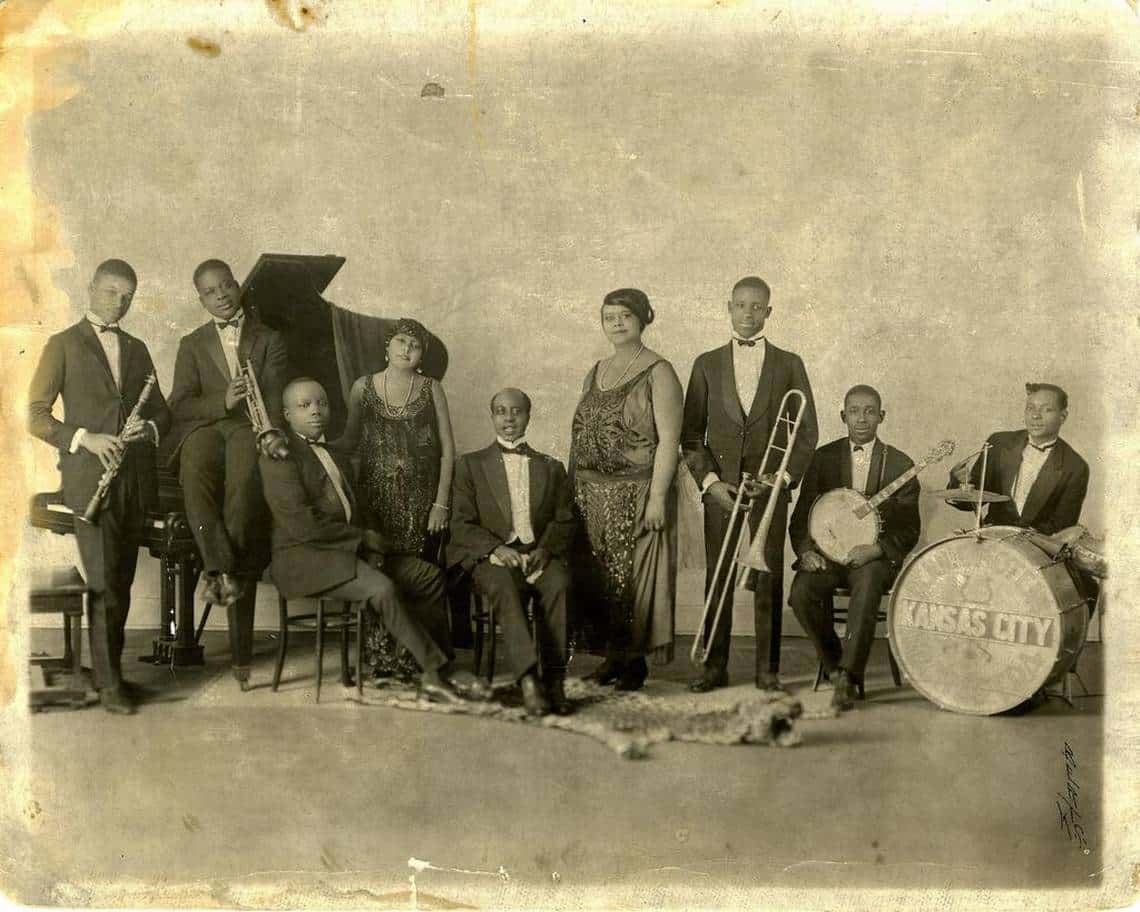Jazz Great Bennie Moten Dies: April 2, 1935

Bennie Moten, a legendary figure in the development of jazz, passed away on this date in 1935. The Kansas City native was undergoing a procedure to remove his tonsils at the time.
The “Kansas City Sound” was sweeping the country in the 1920s and ‘30s, as the city grew. This new sound helped create a musical bridge from the orchestral jazz era to a more improvisational style. Moten, with his masterful piano playing, played a key part in this riffing shift in the genre. As a bandleader and pianist, Moten’s innovative approach to orchestration and rhythm laid the foundation for the swing era. His band, known for its tight ensemble playing and blues-infused style, became an incubator for future jazz luminaries like Count Basie. Moten’s incorporation of riff-based melodies and relaxed, swinging rhythms characterized the Kansas City sound, setting it apart from other regional styles. This sound, with its emphasis on improvisation and dynamic arrangements, not only propelled the popularity of big band jazz but also shaped the future direction of the genre. Moten’s contributions were instrumental in defining the sound of jazz in the 1930s and beyond, forever altering the musical landscape.
Sadly, Moten never got to see his music reach the masses. He died at age 40 at Wheatley Provident Hospital in Kansas City, where the failed procedure was taking place.
One of his bandmates – the aforementioned Count Basie – picked up the baton, so to speak, and helped make Kansas City a hub for jazz and blues.
Based upon content from the book Missouri 365: This Day in Missouri History by John W. Brown, broadcaster and Missouri historian. Get your copy at Reedy Press.
Photo from Unsplash
Related Posts
Vrooms and Booms
The Mega Motorsports Toughest Monster Truck Tour promises larger-than-life thrills as daring drivers test the limits of physics. With tour dates in both Lamar and West Plains, there's ample opportunity to take in the action.
High Southern Cooking at the Keeter Center
At the Keeter Center at College of the Ozarks, students get a complete education in farm-to-fork food preparation. They grow the produce and raise the animals that provide meat for the menu items, and everything is made from scratch.
An Electric Cart Vendor Was Granted a License For The World’s Fair: July 25, 1903
Semple Scott of St. Louis was granted permission to rent small electric cars similar to two-seat golf carts for getting around the World's Fair. They were called Electric Autochairs.




